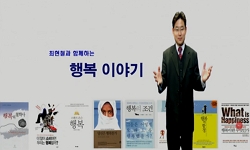본 연구의 목적은 칸트 철학에서 ‘품격’ 개념의 역할을 명확히 규정하며, 이로 말미암아 발생하는 칸트 윤리학과 최고선 이론 사이의 비일관성 문제에 대해 가능한 해결책을 발견하는 것...
http://chineseinput.net/에서 pinyin(병음)방식으로 중국어를 변환할 수 있습니다.
변환된 중국어를 복사하여 사용하시면 됩니다.
- 中文 을 입력하시려면 zhongwen을 입력하시고 space를누르시면됩니다.
- 北京 을 입력하시려면 beijing을 입력하시고 space를 누르시면 됩니다.
부가정보
국문 초록 (Abstract)
본 연구의 목적은 칸트 철학에서 ‘품격’ 개념의 역할을 명확히 규정하며, 이로 말미암아 발생하는 칸트 윤리학과 최고선 이론 사이의 비일관성 문제에 대해 가능한 해결책을 발견하는 것이다. 칸트는 윤리적 실천을 ‘행복할 품격’으로 규정한다. 즉, 이는 ‘도덕적으로 행위한 사람이 다시금 행복해야 한다’는 당위성인데, 칸트는 이에 대한 직관적 확신을 가진 것으로 보인다. 때문에 이에 대해 『실천이성비판』과 『판단력비판』에서는 이를 직접 논증하지 않는다. 반면 『순수이성비판』에서는 도덕적 책무의 개념으로부터 이를 정당화한다. 여기에서 칸트는 인간이 그의 도덕적 행위에 비례하여 행복해야만 하는 이유를 그러한 행복에의 희망이 인간을 도덕적 행위로 인도한다는 점에서 찾는다. 아울러 『실천이성비판』 제2부의 스토아 철학 비판을 통해서도 같은 입장을 확인할 수 있다. 다만 문제는 이러한 윤리적 실천의 토대로서 행복의 개념이 칸트 윤리학의 형식주의와 양립가능한지의 여부이다. 칸트 윤리학과 최고선 이론 사이의 긴장은 여러 선행 연구를 통해서 이미 주지된 바이다. 본 연구는 칸트 자신이 시도한 윤리적 의지의 ‘규정 근거’와 ‘전 대상’의 구별로부터 둘의 양립가능성을 발견한다. 행복이 의지의 규정 근거로 활용되는 경우 이는 분명 윤리성의 결격사유이다. 그러나 이는 윤리적 의지가 지향하는 대상에 행복이 포함될 가능성을 배제하지 않는다.
다국어 초록 (Multilingual Abstract)
In the research herein, I attempt to disentangle the concept of ‘worthiness to be happy’ and its role in Kantian philosophy. I also extrapolate a possible solution to the seeming inconsistency between Kantian ethics and his theory of the highest g...
In the research herein, I attempt to disentangle the concept of ‘worthiness to be happy’ and its role in Kantian philosophy. I also extrapolate a possible solution to the seeming inconsistency between Kantian ethics and his theory of the highest good, an issue that can be properly addressed through the ‘worthiness’ concept. Kant defines moral conduct as worthiness to be happy. This implies that the person who behaves morally also ought to be happy. Kant appears to argue for this intuitively, and does not provide further justifications in his second and third Critiques. However, in the first Critique, he seems to derive such a necessity from the concept of moral responsibility. Here, Kant maintains that one should be happy in a proportion to his moral conduct because the hope for such happiness actually helps human beings to behave morally. We find that this stance continues in the second Critique, especially in Kant’s refutation to the Stoics. The problem lies in the seeming incompatibility between Kant’s concept of happiness as a foundation of moral practice and his ethical formalism. The tension between Kantian ethics and his theory of the highest good has long been noted by many preceding research studies. I herein make an attempt at a possible solution emerging from Kant’s distinction between the determining ground and the whole object of moral will. Obviously, the moral conduct becomes disqualified if the will is driven by expectation for happiness. However, this does not necessarily exclude happiness from being proper objects of moral will.
목차 (Table of Contents)
- 요약문
- Ⅰ. 서론
- Ⅱ. 품격 개념의 규정
- Ⅲ. 품격 개념 검토: 왜 윤리적 처신에 비례하는 행복이 주어져야만 하는가?
- Ⅳ. 결론 및 보론
- 요약문
- Ⅰ. 서론
- Ⅱ. 품격 개념의 규정
- Ⅲ. 품격 개념 검토: 왜 윤리적 처신에 비례하는 행복이 주어져야만 하는가?
- Ⅳ. 결론 및 보론
- 참고문헌
- ABSTRACT
참고문헌 (Reference)
1 강지영, "칸트의 최고선 개념에 대한 연구" 35 : 141-176, 2007
2 백종현, "칸트에서 ‘가능한 세계의 최고선’" 철학연구회 (96) : 39-70, 2012
3 강지영, "칸트 윤리학의 맥락에서 본 최고선에 대한 논의들" 철학사상연구소 (27) : 201-226, 2008
4 문성학, "칸트 윤리학에 있어서 형식과 실질" 28 : 229-250, 2002
5 Kant, Immanuel, "이성의 한계 안에서의 종교" 아카넷 2015
6 Kant, Immanuel, "실천이성비판" 아카넷 2015
7 Kant, Immanuel, "순수이성비판2" 아카넷 2015
8 Smith, Steven G, "Worthiness to Be Happy and Kant’s Concept of the Highest Good" 75 (75): 168-190, 1984
9 Kant, Immanuel, "Werkausgabe. Edited by Wilhelm Weischedel" Suhrkamp 1977
10 Neiman, Susan, "The Unity of Reason: Rereading Kant" Oxford University Press 1994
1 강지영, "칸트의 최고선 개념에 대한 연구" 35 : 141-176, 2007
2 백종현, "칸트에서 ‘가능한 세계의 최고선’" 철학연구회 (96) : 39-70, 2012
3 강지영, "칸트 윤리학의 맥락에서 본 최고선에 대한 논의들" 철학사상연구소 (27) : 201-226, 2008
4 문성학, "칸트 윤리학에 있어서 형식과 실질" 28 : 229-250, 2002
5 Kant, Immanuel, "이성의 한계 안에서의 종교" 아카넷 2015
6 Kant, Immanuel, "실천이성비판" 아카넷 2015
7 Kant, Immanuel, "순수이성비판2" 아카넷 2015
8 Smith, Steven G, "Worthiness to Be Happy and Kant’s Concept of the Highest Good" 75 (75): 168-190, 1984
9 Kant, Immanuel, "Werkausgabe. Edited by Wilhelm Weischedel" Suhrkamp 1977
10 Neiman, Susan, "The Unity of Reason: Rereading Kant" Oxford University Press 1994
11 Willaschek, Macus, "The Highest Good in Kant’s Philosophy" Walter de Gruyter GmbH 223-244, 2016
12 Pasternack, Lawrence, "Restoring Kant’s Highest Good" 55 (55): 435-468, 2017
13 Mariña, Jacqueline, "Making Sense of Kant’s Highest Good" 91 (91): 329-355, 2000
14 Caswell, Matthew, "Kant’s Conception of the Highest Good, the Gesinnung, and the Theory of Radical Evil" 97 (97): 184-209, 2006
15 Silber, John R, "Kant’s Conception of the Highest Good as Immanent and Transcendent" 68 (68): 168-190, 1959
16 Pasternack, Lawrence, "Kant on Religion within the Boundaries of Mere Reason" Routledge 2014
17 Hegel, G. W. F, "Elements of the Philosophy of Right" Cambridge University Press 2003
18 Kant, Immanuel, "Critique of the Power of Judgment" Cambridge University Press 2002
19 Kant, Immanuel, "Critique of Pure Reason" Cambridge University Press 1998
20 Kant, Immanuel, "Critique of Practical Reason" Cambridge University Press 2001
21 Döring, Sabine, "Being Worthy of Happiness:Towards a Kantian Appreciation of Our Finite Nature" 41 (41): 123-142, 2013
22 Beck, Lewis W, "A Commentary on Kant’s Critique of Practical Reason" University of Chicago Press 1960
동일학술지(권/호) 다른 논문
-
- 서울대학교 철학사상연구소
- 편상범(Pyeon, Sang-beom)
- 2019
- KCI등재
-
- 서울대학교 철학사상연구소
- 오흥명(Oh, Heung Myung)
- 2019
- KCI등재
-
들음의 인간학 -하이데거 철학에서 인간 현존재의 본래적인 존재방식-
- 서울대학교 철학사상연구소
- 송현아(Song, Hyun-Ah)
- 2019
- KCI등재
-
- 서울대학교 철학사상연구소
- 반성택(Pan, Sungtak)
- 2019
- KCI등재
분석정보
인용정보 인용지수 설명보기
학술지 이력
| 연월일 | 이력구분 | 이력상세 | 등재구분 |
|---|---|---|---|
| 2026 | 평가예정 | 재인증평가 신청대상 (재인증) | |
| 2020-01-01 | 평가 | 등재학술지 유지 (재인증) |  |
| 2017-01-01 | 평가 | 등재학술지 유지 (계속평가) |  |
| 2014-09-04 | 학술지명변경 | 외국어명 : 미등록 -> CHUL HAK SA SANG - Journal of Philosophical Ideas |  |
| 2013-01-01 | 평가 | 등재학술지 유지 (등재유지) |  |
| 2010-01-01 | 평가 | 등재학술지 유지 (등재유지) |  |
| 2008-01-01 | 평가 | 등재학술지 유지 (등재유지) |  |
| 2005-01-01 | 평가 | 등재학술지 선정 (등재후보2차) |  |
| 2004-01-01 | 평가 | 등재후보 1차 PASS (등재후보1차) |  |
| 2003-01-01 | 평가 | 등재후보학술지 선정 (신규평가) |  |
학술지 인용정보
| 기준연도 | WOS-KCI 통합IF(2년) | KCIF(2년) | KCIF(3년) |
|---|---|---|---|
| 2016 | 0.62 | 0.62 | 0.57 |
| KCIF(4년) | KCIF(5년) | 중심성지수(3년) | 즉시성지수 |
| 0.5 | 0.51 | 1.483 | 0.11 |





 DBpia
DBpia







